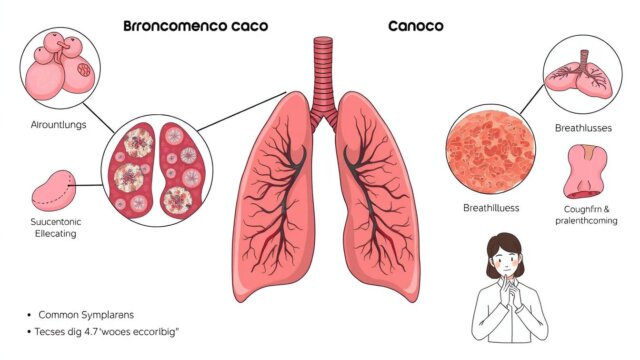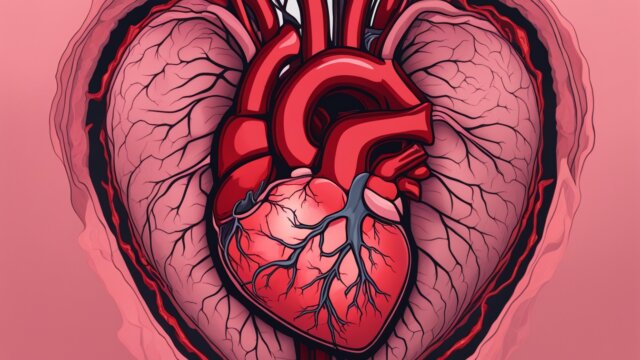FTC disclaimer: This post may contains affiliate links and we will be compensated if you click on a link and make a purchase.
Did you know the average person belches up to 30 times a day? Belching is normal and common. But if you belch a lot, it could mean something’s wrong in your gut. We’ll look at why you belch, how to stop it, and when to see a doctor.
Key Takeaways
- Belching is a normal way to get rid of extra air from your stomach.
- Swallowing too much air, acid reflux, or Helicobacter pylori infection can cause a lot of belching.
- Certain foods and drinks with carbonation can make you belch more.
- Changing your habits and using over-the-counter remedies can help. But if it’s really bad, you might need a doctor.
- If belching is really getting in the way of your life, you should see a doctor to find out why.
What is Belching?
Definition and Symptoms
Belching, also known as burping or eructation, is when gas comes out of the stomach through the mouth. It’s a normal thing that happens when we swallow too much air or make it into our upper digestive tract. You might hear a quiet or loud sound when someone belches. It can also make you feel bloated, full, or cause gas.
Swallowing too much air can happen if you suck on candies or chew gum. Drinking things like soda or beer can also make you belch more. Some people with Irritable Bowel Syndrome (IBS) might get stomach cramps from gas.
Belching can happen when you swallow air on purpose or by accident. This can be from eating fast, talking while eating, chewing gum, or drinking through a straw. Foods like beans, broccoli, and carbonated drinks can make you belch more often.
Some women, especially after pregnancy, might feel bloated because their stomach muscles are weak. Foods like cabbage, cauliflower, and broccoli can also make you pass gas more.
If you belch a lot or it’s not normal, it might mean you have a digestive problem. But, normal belching usually doesn’t need treatment. If you belch a lot, see a doctor to check what’s going on.
Causes of Belching
Belching, or burping, is a common event for many reasons. Knowing why it happens can help you fix the issue. It’s normal to burp a few times after eating. But if you burp a lot, it might be a sign of a bigger problem.
Swallowing too much air is a big reason for belching. This can happen if you eat or drink fast, talk while eating, chew gum, or drink carbonated drinks. Drinks with carbonation and swallowing air are the top causes of burping. Chewing gum, eating fast, sucking on candies, and bad dentures also make you swallow more air.
Some stomach issues can make you belch more. GERD can cause a lot of burping and might need diet changes or medicine. Conditions like indigestion, gastritis, Helicobacter pylori infection, and IBS can also make you belch a lot.
Structural problems can lead to belching too. Bad dentures can make you swallow more air, causing more burping. Some people swallow air on purpose, even when not eating or drinking, which also leads to belching.
If you’re worried about belching, see a doctor for help and tests. If you’re bothered by burping, it’s a good idea to talk to a doctor for advice and tests.
Reducing Excessive Belching
Dietary and Lifestyle Changes
If you often belch too much, there are steps you can take. Eating and drinking slowly helps avoid swallowing too much air, which causes belching. Also, stay away from carbonated drinks and beer, as they make belching worse.
Avoid chewing gum and hard candy too, as they increase air intake. Quitting smoking helps, since smoke makes you swallow air. Make sure your dentures fit right to stop swallowing air while eating.
Walking a bit after meals can help get rid of extra gas and ease discomfort. Fixing issues like gastroesophageal reflux disease (GERD) can also cut down on belching.
“Excessive burping is considered a problem when symptoms become frequent and interfere with social situations.”
By making these dietary and lifestyle changes, you can lessen your belching and boost your digestion.

Belching and Flatulence
Belching and flatulence are both about getting rid of gas from our bodies. Belching happens when gas comes out through the mouth from the stomach. Flatulence is when gas leaves the body through the anus from the intestines. Foods like beans and veggies can make more gas.
Most people belch and pass gas a bit. On average, we all pass gas about 20 times a day. Belching a few times after eating is okay. But too much means you might have a gut issue and should check it out.
Carbs are the main cause of gas because they’re hard for our bodies to digest. Foods like beans, veggies, fruits, and dairy can cause gas. Changing what we eat and treating gut problems can help with belching and flatulence.
Causes of Gas | Frequency of Gas |
|---|---|
Carbohydrates, especially in foods like beans, vegetables, and dairy products | It’s normal to pass gas from 6 to 20 times a day, with 20 times a day being the average. |
Digestive issues like irritable bowel syndrome (IBS), lactose intolerance, and celiac disease | Belching 3 or 4 times after a meal is considered normal. |
Knowing why we belch and pass gas can help us fix it. Making changes in our diet and lifestyle can help. If it doesn’t get better, seeing a doctor is a good idea to find out why.

“Some individuals may dismiss serious symptoms like those of a heart attack as mere gas or indigestion.”
It’s key to know when belching and flatulence are normal and when they’re not. If it’s a lot or with other weird symptoms, see a doctor.
Belching and Bloating
Belching and bloating are often linked but are complex. Belching is when gas is pushed out from the stomach. Bloating is feeling full or swollen in the belly. Not everyone with bloating belches a lot, and not everyone who belches feels bloated.
People with irritable bowel syndrome (IBS) or sensitive digestion might feel bloated more easily. This is even if they don’t make more gas. Eating foods high in starch, sugar, or fiber can also cause belching and bloating.
Fixing the reasons for belching, like swallowing air or gut problems, can help with bloating. Some health issues, like stomach ulcers or celiac disease, can also cause belly pain and bloating.
If belching won’t stop or hurts a lot, see a doctor. Over-the-counter drugs can ease stomach pain and belching from indigestion. Eating slowly and avoiding fizzy drinks can also help.

The link between belching and bloating is not clear. Everyone’s experience is different. It’s key to talk to health experts to figure out and treat these issues.
Belching
Belching, also known as eructation, is a normal and common bodily function. It happens when excess air is expelled from the stomach through the mouth. This process helps reduce gas in the upper stomach. Most people belch up to 30 times a day, which is normal.
Occasional belching is okay and helps the body get rid of extra air from the digestive tract. But, some people belch a lot and it might mean there’s a problem. Some have a condition called supragastric belching and belch a lot, even hundreds to thousands of times a day.
Supragastric belching can be helped by seeing a speech pathologist. Another issue is rumination syndrome, where people regurgitate and re-swallow food. Therapy, including breathing exercises, can help with this.
There aren’t many studies on treating supragastric belching, but some think a drug called Baclofen might help. If belching is a big problem, seeing a doctor is a good idea to find out why and get help.
Condition | Frequency of Belching | Treatment Approach |
|---|---|---|
Normal Belching | Up to 30 times per day | No treatment necessary |
Supragastric Belching | Hundreds to thousands of times per day | Behavioral intervention with a speech pathologist |
Rumination Syndrome | Regurgitating, re-chewing, and re-swallowing food | Behavioral therapy, including abdominal breathing techniques |
Other reasons for belching include swallowing air, lactose intolerance, changes in hormone levels, and dyspepsia. It’s normal to pass gas 6 to 20 times a day, and belching a few times after eating is okay.
“Belching is a normal physiologic process that occurs in everyone to decrease the volume of gas in the upper stomach.”

In conclusion, belching now and then is okay, but if it happens a lot, it might mean something’s wrong. Seeing a doctor can help figure out why and find a way to stop it. Knowing about these issues can help people feel better and keep their digestion healthy.
When to Seek Medical Attention
Belching is usually normal and okay. But if you belch a lot and it gets in the way of your life, you should see a doctor. Look for help if you also have diarrhea, stomach pain, bloody stools, or other signs. These could mean you have a health issue that needs attention.
Some foods and drinks can make you burp more, like gum, candy, and fizzy drinks. Gum and candy make you swallow air, and fizzy drinks add to the burps. Eating fast or smoking can also cause more air to get in. Changing your habits might help you belch less.
If you keep belching or it comes with other bad symptoms, see a doctor. Issues like swallowing too much air or acid reflux can cause it. Your doctor might suggest therapy, lifestyle changes, or medicine to help you.
Belching is normal, but watch out for changes or other symptoms that could mean something serious. If your belching is too much or you have other bad signs, talk to your doctor.
Condition | Symptoms | Treatment |
|---|---|---|
Aerophagia | Frequent burping due to excessive air swallowing | Speech or behavioral therapy to reduce air-swallowing behaviors |
Supragastric Belching | Excessive burping caused by moving air into the esophagus | Speech or behavioral therapy to manage the condition |
GERD | Burping due to stomach acid refluxing into the esophagus | Lifestyle changes or medications to reduce acid reflux |
“A person experiencing excessive burping should consult a doctor if it affects their quality of life or if accompanied by other symptoms like abdominal pain, nausea, or difficulty swallowing.”
If belching is bothering you a lot or you have other bad symptoms, get medical help. Your doctor can find out why and help you feel better.
Diagnostic Tests for Belching
If your doctor thinks your belching is due to an underlying issue, they might suggest some tests. These tests aim to find out why you’re belching a lot. They check if it’s because of GERD, food intolerances, or other gut problems.
Identifying the Cause
An X-ray or endoscopy might be done to look at your esophagus and stomach. This checks for GERD or other issues. Your doctor might also suggest an elimination diet to see if certain foods cause your belching.
The hydrogen breath test can spot small intestinal bacterial overgrowth (SIBO) or lactose intolerance. Both can lead to a lot of belching. Blood tests might also be done to check for things like celiac disease.
These tests help figure out why you’re belching. They let your doctor make a plan to fix it and boost your gut health.
Diagnostic Test | Purpose |
|---|---|
X-ray or Endoscopy | Examine the esophagus and stomach for signs of GERD or other structural issues |
Elimination Diet | Identify food intolerances that may be contributing to belching |
Hydrogen Breath Test | Detect small intestinal bacterial overgrowth (SIBO) or lactose intolerance |
Blood Tests | Rule out conditions like celiac disease |
By doing these tests, you and your doctor can find out why you’re belching. Then, you can work together to fix it and make your gut healthier.
Medications and Supplements That May Cause Belching
Some medicines and supplements can make you burp a lot. This includes drugs for acid reflux or GERD like antacids, H2 blockers, and proton pump inhibitors. Also, supplements like calcium, iron, and fiber can cause gas and belching. If you think a medicine or supplement is making you burp too much, talk to your doctor. They can suggest other options or changes to your treatment.
Antibiotics like amoxicillin, azithromycin, and cephalexin can mess with the good bacteria in your gut. This can affect how you digest food. To help your gut health, eat foods with probiotics like yogurt and take your antibiotics as directed.
Opioids, iron supplements, fiber supplements, and fish oil supplements are also linked to more belching. Trying things like deep breathing can help reduce burping. Taking proton pump inhibitors before meals might also help with belching caused by reflux.
Other things can make you burp more too. This includes using straws, chewing gum, smoking, sucking on hard candies, eating fast, and eating certain foods like artificial sweeteners, carbonated drinks, beans, onions, fruits, lactose, and legumes. Bad-fitting dentures can also trap air and cause more belching.
Belching can also be a sign of stomach problems like functional dyspepsia or Helicobacter pylori infection. If you keep having issues, see a gastroenterologist.
“A review published in Progress in Neuro-Psychopharmacology & Biological Psychiatry in 2021 indicates that many antidepressant treatments are associated with gastrointestinal side effects.”
“Research published in Primary Care Companion in 2021 suggests that individuals taking selective serotonin reuptake inhibitors (SSRIs) may have a higher likelihood of experiencing flatulence.”
Medication/Supplement | Potential Belching Effect |
|---|---|
Antacids, H2 blockers, Proton pump inhibitors | Can contribute to excessive belching |
Calcium, Iron, Fiber supplements | Can lead to increased gas and belching |
Antibiotics (amoxicillin, azithromycin, cephalexin) | Can disrupt gut bacteria and affect digestion |
Opioids, Fish oil, Iron, Fiber supplements | Commonly associated with increased belching |
Conclusion
Belching is a normal thing that happens to us all. But if you belch a lot or it doesn’t stop, it might mean something’s wrong in your stomach. Knowing what makes you belch can help you fix it with changes in your diet and lifestyle.
If you also have stomach pain, heartburn, or trouble swallowing, you should see a doctor. They can run tests like high-resolution impedance manometry to find out why you’re belching a lot.
Keeping your digestive system healthy and knowing when to get help is key. Belching is normal, but if it’s a lot or doesn’t stop, you should check with a doctor. They can help you feel better and keep your stomach happy.
FAQ
What is belching?
Belching, also known as burping or eructation, is a natural process. It happens when your body gets rid of extra air from the stomach through your mouth. This is your body’s way of removing air that builds up in the stomach.
What are the main causes of belching?
Belching can be caused by swallowing too much air, or by conditions like GERD, gastritis, and Helicobacter pylori infections. It can also be caused by poorly fitting dentures or swallowing air due to nervous habits.
How can I reduce excessive belching?
To cut down on belching, eat and drink slowly. Avoid carbonated drinks and beer. Don’t chew gum or eat hard candy. Quit smoking and make sure your dentures fit right. Taking a short walk after meals can also help. Treating conditions like GERD is also important.
Is belching related to flatulence?
Yes, belching and flatulence are related. They both involve getting rid of gas from the digestive system. Belching is when gas comes out through the mouth from the stomach. Flatulence is when gas comes out through the anus from the intestines.
How is belching connected to bloating?
Belching and bloating are sometimes linked, but it’s not fully understood. Bloating is feeling full or swollen in the belly. It might happen with belching, but not always. Many people with bloating don’t belch a lot.
Is belching a normal bodily function?
Yes, belching is normal and common. It happens when your stomach gets rid of extra air through your mouth. Most people belch up to 30 times a day, which is normal.
When should I seek medical attention for belching?
See a doctor if your belching has other symptoms like diarrhea, stomach pain, bloody stools, or weight loss. These could mean there’s a serious stomach problem.
What diagnostic tests may be used to identify the cause of excessive belching?
Tests to find the cause of too much belching might include X-rays or endoscopies. An elimination diet can help find food problems. A hydrogen breath test can check for small intestine issues or lactose intolerance. Blood tests might be done to rule out things like celiac disease.
Can medications and supplements cause belching?
Yes, some medicines and supplements can make you belch more. This is often a side effect of drugs for acid reflux or GERD, like antacids or proton pump inhibitors. Supplements like calcium, iron, or fiber can also cause it.








